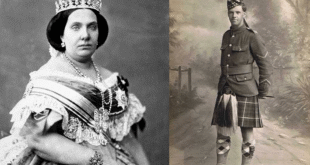Spanish federal government closet priests offered their authorization on Tuesday 3 December to the record appointed to a board of professionals to shield minors from technical atmospheres and which suggests, to name a few security procedures, using smart phones without web or social networks for kids and young adults in between 6 and 16 years old, the complete limitation of electronic gadgets for kids as much as 6 years old and stopping using displays in institutions.
The record, to which SUR has actually had gain access to, consists of 107 procedures focused on securing minors from the dangers of the web that can be integrated right into the draft expense for the security of minors in electronic atmospheres, a legislation that is presently in the general public appointment stage after its authorization in the preliminary in June.
According to the federal government agent and education and learning priest, Pilar Alegría, after the closet conference, this is a “introducing record” that suggests 107 procedures, 35 of which were currently authorized in June, such as adult control or age confirmation systems to suppress minors’ accessibility to betting or porn internet sites. “It is a beginning indicate be created throughout the existing legislature,” Alegría claimed.
The file, which has actually been prepared by a board of 50 professionals (from teachers, paediatricians and kid psycho therapists to information security experts), additionally suggests not revealing kids under the age of 3 to electronic gadgets and suggests governing procedures focused on the market field, such as necessary labelling of the health and wellness dangers related to using electronic gadgets and the prep work of effect records on such items.
The 231-page message, appointed by the Ministry of Young People and Kid, replies to expanding social problem regarding the dangers related to unacceptable use displays by minors, such as the advancement of physical, emotional and psychological health issue, problems in social communication and cyber-bullying.
Dynamic gain access to.
Amongst the suggestions “for risk-free searching” there is a particular area on the “progressive gain access to” of minors to displays according to their age, in which grownups are encouraged to restrict using displays in the visibility of minors under 6 years old, and to enable it just in between 3 and 6 years old “as an exemption” and with the purpose of keeping “social or family members get in touch with or when figured out by judicial choice”.
In between the ages of 6 and 16, professionals recommend providing concern to using analogue phones, i.e. just with the opportunity of making telephone calls and without web link. And if family members do make a decision to offer a mobile phone to kids of these ages, it is advised not to enable accessibility to social networks and to make use of adult control devices to keep an eye on time and web content.
For kids in between the ages of 6 and 12, professionals particularly stress prioritising experiential tasks, sporting activities and call with nature. “And if they make a decision to make use of a tool”, it needs to be “under the guidance of a grown-up and just to gain access to web content adjusted to their age and capacity”.
The record additionally makes propositions for guideline in the area of education and learning. In this area it distinguishes in between gadgets for the personal use students (not admitted baby and key education and learning, and restricted as instructional devices in additional education and learning) and those of the centres themselves. In the last, it suggests the alteration of applications and the removal of video games from academic applications pertaining to prompt satisfaction systems.
It additionally prompts that specific electronic gadgets must not be utilized for babies, “although using cumulative training devices will certainly be permitted under the ideal guidance of educators” which their usage must be prevented in the absolutely no to 3 age”. It includes that in key institution (6 to 12 years), “concern will certainly be provided to analogue training”.
Guideline of influencers.
When it come to the security of the legal rights of one of the most at risk individuals (kids and teenagers), the board suggests the guideline of web content designers – consisting of kid influencers – and supports the “reveal restriction of revealing minors in the web content of their on the internet task”. In this feeling, the board particularly prompts the guideline of the method of ‘sharenting’ (publishing web content regarding your kids online).
The professionals additionally recommend training prepare for family members, with web content such as risk-free searching, gain access to restrictions, direct exposure time and ideal guidance for every age, and think about that parent-teacher organizations and 3rd field organisations must be offered with financial backing for their execution.
Clear labelling of dangers.
The message supports that innovation business must consist of identifying caution of the major health and wellness dangers related to using electronic gadgets and applications, along with accessibility to web content that is not ideal for minors. These cautions “must additionally show up on displays when accessing a certain application or online system, suggesting the health and wellness dangers and the optimum advised time of usage”.
Furthermore, in each brand-new launch of an electronic item, makers should consist of a record on the influence on minors with suggestions by age relying on the systems, social networks or messaging solutions concerned. And they should be set up “from the style and by default” with safety procedures for minors to make sure “optimal protection setting”, staying clear of advertising and marketing or automated alerts when there is no approval as needed by legislation.
Fifty professionals from organisations such as the European Organization for the Digital Change (as a matter of fact, the board was chaired by the vice-president of this organisation, Ana Caballero), the System of Kid’s Organisations, Unicef, Conserve The Kid, the Spanish observatory on bigotry and prejudice, the state council for kid and teen engagement, the young people council, the Spanish organization of paediatrics, the Spanish board of reps of individuals with impairments (Cermi), the Spanish information security company, the state institution council, the nationwide cybersecurity institute (Incibe), the nationwide compensation for markets and competitors and the council of customers and customers.
Additionally existing were the confederations of moms and dads’ organizations and 3rd field entities and organisations at nationwide degree, along with experts in the areas of paediatrics, psychology, sex equal rights and the security of psychological health and wellness, and professionals in being experts in assuring the legal rights of kids and youths.
 Costa News Spain Breaking News | English News in Spain.
Costa News Spain Breaking News | English News in Spain.






